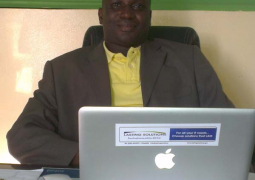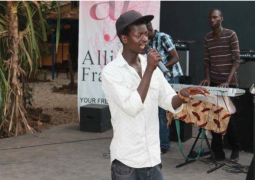According
to the Independent Electoral Commission (IEC), the official campaign period
starts tomorrow, Wednesday.
The
commission has issued the approved campaign itineraries of the three candidates
for the 1st December 2016 presidential election.
So
for the next two weeks, starting tomorrow, all the candidates will be
descending on different parts of The Gambia, based on their approved
itineraries, to canvass for votes.
But
as they and their teams prepare their luggage and fuel their vehicles, we have
a message for them: be mindful of your
words and do not play with people based on ethnic dimensions.
A
major cause of African conflicts has been ethnicity, and it has continued to be
so. In view of this, one of the key
things that our candidates should be mindful of is making utterance that could
lead to tribal or ethnic segregation. A
mere utterance of a political leader can pit tribes against one another.
The
Gambia is one of the few states in Africa that enjoy a high degree of
homogeneity or, at least, a relatively inconsequential diversity. Because of this, the country is known as a
bastion of peace, which is underpinned by exemplary cohesiveness and unity
among the different tribes.
Even
though the Constitution outlawed parties organised on tribal or ethnic basis,
of late empirical evidence seemed to suggest that Gambians are more divided on
tribal lines than ever before when it comes to their choice of party. The political leaders cannot be exonerated
from this.
Our
leaders must not be oblivious of the fact that their support base is
multi-ethnic, consisting of people from all the tribes in the country. No single ethnic group in The Gambia is big
enough to win a candidate in a presidential election without votes from other
tribes.
So
the candidates must be warned not to use statements that will first and
foremost alienate their own supporters, and scare away members of other ethnic
groups who could be potential supporters of their party.
Tribe
is one of the most sensitive things but, sadly, it has been used by African
politicians to promote their selfish ambitions.
The Rwandan civil conflict is always a good reference point when it
comes to politicians and ethnicity.
But
apart from Rwanda, research has shown that almost every other conflict in
Africa, even those that may appear to be free of ethnic concerns, involve
factions and alliances built around ethnic loyalties.
It
can be best if we can campaign without invoking tribal utterances. We want a situation where, for example, the
opposition will say ‘I want to take the country from the incumbent because his
policies are not good due to blah blah blah’.
The
incumbent can in turn say ‘don’t mind the oppositions their manifestoes are not
implementable for they lack a clear sense of direction and purpose’.
This
is a much better way of campaigning than say, “it is time for another tribe to
lead because the other one has ruled for so long.”
Or
to say, “this particular tribe does not like this particular party because the
leader of the party is from another tribe.”
All
the parties should borrow a cue from Halifa Sallah in that regard. Halifa always sells himself by attacking
issues not personalities based on tribe.
He always says, for instance, the economic policy of the incumbent lacks
merit. This is a type of campaigning we
need: a campaign based on issues!
So,
in a nutshell, as you the presidential candidates embark on your campaign of
vote canvassing, sell your messages based on issues not personalities and or
the tribal dimension.
We
need you to fashion a system in which ethnic groups can play a constructive
role in fostering cooperation and facilitate the process of nation-building,
not to serve as a disintegrating tool.
“In
a tribal organization, even in time of peace, service to tribe or state
predominates over all self-seeking; in war, service for the tribe or state
becomes supreme, and personal liberty is suspended”
Arthur
Keith



